Background Note: The public has until March 12 to comment on the new clean air standards proposed by the EPA. It is anticipated that there will be an attempt made in Congress to weaken the EPA proposals by exercising the recently-passed Congressional authority to amend or veto regulations which affect small businesses. Many environmental regulations affect small businesses.
In the fall of 1996, the U.S. Environmental Protection Agency (EPA) released draft revisions for national air quality standards under the Clean Air Act. The proposed standards are in response to strong evidence that both ground level ozone and fine particulates cause -or exacerbate a number of serious respiratory conditions, particularly among children and the elderly, and of residents of congested and industrial areas. A 1996 study by Natural Resources Defense Council estimates that the total premature mortality attributable to air pollution is over 60,000 Americans each year.
The NJCRAC calls on the EPA to consider whether the proposed air regulations meet the following criteria and calls upon the Congress and Administration to adhere to the following principles whenever decisions concerning pollution control are made:
- Pikuach nefesh, the cautious protection of human health and life, is of paramount importance in Jewish law. Government must take the measures necessary to protect the public from harmful pollution.
- All people deserve equal protection from environmental pollution. Regulations should protect those who are particularly vulnerable to pollution-related illness, such as children and the elderly.
- Sound science should underlie all regulations. If there is significant uncertainty, or disagreement among scientific bodies, regulations should cautiously and prudently err in favor of protecting human fife and health.
Therefore, the NJCRAC calls on the EPA and the Congress to strengthen air standards, and increase funding for alternative, low-pollution energy production and mass transit in order to reduce rates of serious respiratory illness, including asthma and hospitalization for respiratory problems, in urban and other polluted areas to rates similar to those in largely air pollution-free rural areas.
